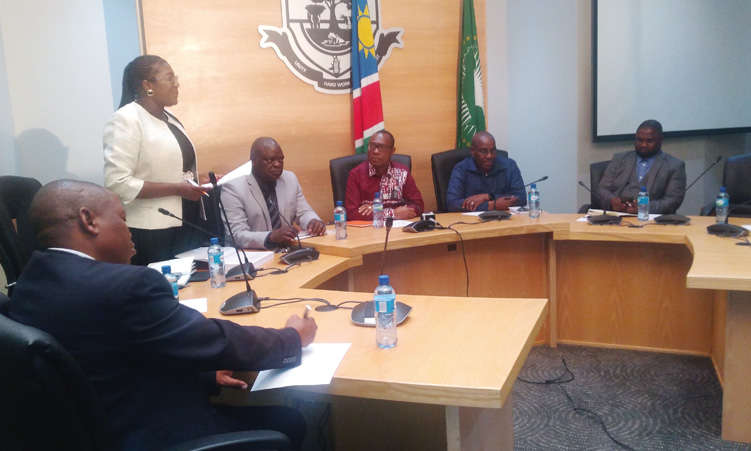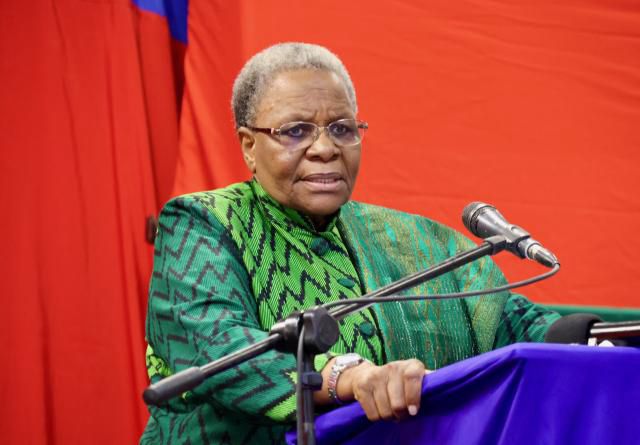SIBBINDA constituency councillor Micky Lukaezi says the allocation of budgets according to regional population disadvantages the Zambezi region to the point where priorities are overlooked.
He said this during the regional mid-term budget consultations undertaken by the minister of finance and public enterprises, Iipumbu Shiimi, on Monday at Katima Mulilo.
Shiimi and representatives from the National Planning Commission (NPC) are on a three-day visit to the region to solicit input from regional leadership, traditional authorities, communities and other stakeholders about their challenges, concerns and expectations from the government.
Lukaezi said the region is deprived and as a result, not on par with the other regions.
He cited the example of the Kavango East region being electrified up to Omega 1, but the same cannot be said about rural communities at Kongola.
“We really remain vulnerable, as the NPC does not really move and see what our needs are, and just allocates the budget according to population per region. We submit our priorities as a region, however, what comes is different. I submitted the construction of the road from Sibbinda to Linyanti as a priority but what I have seen budgeted for is the road from Makanga to Sibbinda,” he said.
He said in the east of the region, rural communities in the floodplains are unable to access essential services annually and require bridges to be constructed. However, this is not happening.
“Instead, you will see bridges being constructed in other parts of the country where they are not needed, like at Okahandja, while people in the Zambezi region are suffering. We do not even have a prison, while other regions have two.
“It really makes one wonder what the government is doing to us as a region.”
He said despite the region only having one district hospital, things are even worse at health centres as they do not have doctors or a mortuary, and are unable to admit patients.
In other regions, however, health centres are fully functional, he said.
Zambezi chief regional officer Regina Ndopu-Lubinda noted the budgets allocated to the regions still remain under control at the national level, resulting in them moving the money to other regions without consulting the region concerned.
She said this is despite the NPC making it mandatory for a ministry to seek a letter from the regional council to confirm that they were consulted on the movement of money.
“However, this just worked for a while and then it stopped. There is also a tendency that in some regions the money is just being parked, and at some stage the money is being diverted to the region you wanted to implement from the very beginning. This should be looked into to see how we should strengthen to ensure that the money budgeted for a specific region is used in that region, she said.”
She appealed to the finance ministry and the NPC to look into the standards to be applied in rural and urban areas because communities in rural areas shouldn’t be disadvantaged to those in urban areas.
“If we are going to look at equity for all, we need to see to it that the standards are applicable everywhere.”
Any upcoming local authority should have a defined minimum budget, she said, noting that currently one village in another region may receive N$70 million, while a village in the Zambezi region only gets N$10 million.
“However, you would then have questions as to why this local authority is not performing. Katima Mulilo, for all these years, has never had a sewer system, but you expect them to perform. The minimum cost of a sewer system is about N$30 million, however, the budget given is N$4 million within other defined issues,” she said.
Stay informed with The Namibian – your source for credible journalism. Get in-depth reporting and opinions for
only N$85 a month. Invest in journalism, invest in democracy –
Subscribe Now!










